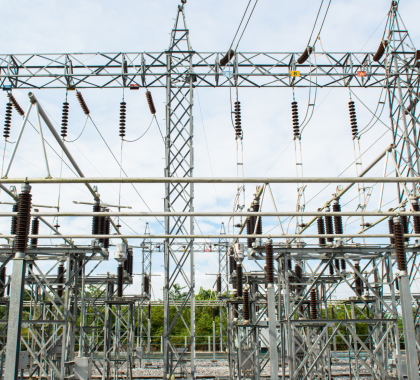A decision by New Hampshire’s Supreme Court to uphold a state commission’s rejection of the Northern Pass electricity transmission line may make it harder, or at least more expensive, for the state to meet its combined demand for reliable electric power, and the region to meet is carbon dioxide emission reduction goals under the Regional Greenhouse Gas Initiative.
Northern Pass History
Eversource, New England’s largest energy provider, which provides electric and natural gas to more than more than 3.6 million customers in Connecticut, Massachusetts, and New Hampshire, first proposed the 192 mile Northern Pass Transmission line in 2011. The line was to deliver 1,090 Megawatts of carbon dioxide emission free electric power from a massive hydropower project being developed on rivers in the Canadian province of Quebec to the New England grid, helping the region to meet its Regional Greenhouse Gas Initiative emission reduction goals.
Environmental groups and residents in Northern part of the state attacked the proposal from the start arguing the power corridor for the line, which would cut through the White Mountain National Forest, would harm the environment and result in visual blight.
New Hampshire’s Site Evaluation Committee (SEC), which the legislature established to review, approve, monitor, and enforce compliance with the planning, siting, construction, and operation of energy facilities in the state, rejected the Northern Pass project in 2018. The SEC’s decision followed the recommendation of a subcommittee which concluded Eversource had not met its burden to show the project would “not unduly interfere with the orderly development of the region,” one of four criteria the project needed to meet to be approved.
Appeal to the Supreme Court
Eversource appealed the decision arguing the SEC acted prematurely before all the facts were in because it had not completed its work: SEC had not considered all four criteria before rejecting the route. In particular, although SEC found Northern Pass met the condition for financial stability, the commission had not undertaken a review to determine the environmental impact of the project or whether it would be in the public’s interest, before voting to reject the transmission line.
SEC and environmental groups said the project did not merit a new hearing as the agency had broad discretion under the law, and did everything the law required.
The Supreme Court agreed.
“The legislature has delegated broad authority to the Committee to consider the ‘potential significant impacts and benefits of a project,’ and to make findings on various objectives before ultimately determining whether to grant an application,” wrote Associate Justice Anna Barbara Hantz Marconi in her unanimous decision for the court. “We have reviewed the record and conclude that the Subcommittee’s findings are supported by competent evidence and are not erroneous as a matter of law.”
The court ruled it was not charged with determining whether or not the project was a good idea, but rather simply to determine whether SEC had followed the law when it rejected the transmission line.
“We reiterate that it is not our task to reweigh the evidence or to determine whether we would have credited one expert over another,” wrote Marconi.
H. Sterling Burnett, Ph.D. ([email protected]) is a research fellow at The Heartland Institute.





